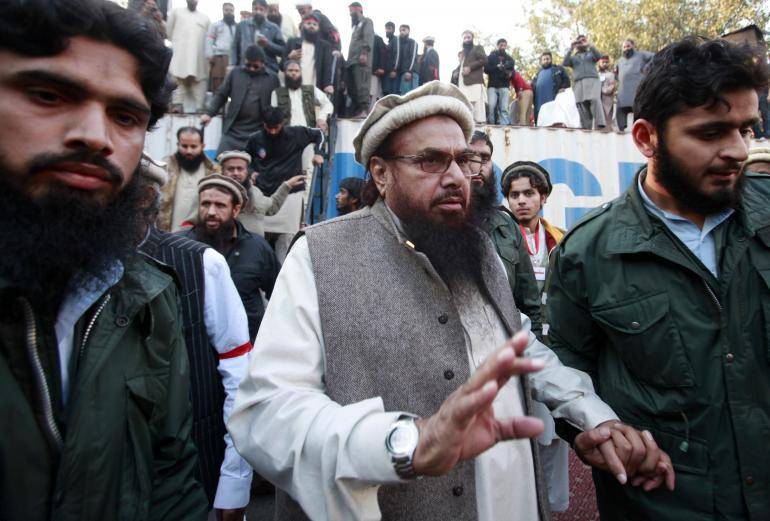What does the banning of a religious organization really mean?
What is the point of announcing their addition to the list of condemned organizations when there are hardly any curbs on their activities?
It is easy to criticize the Government of Pakistan in this regard, but hardly anyone accounts for the complex problems they have to deal with.
Even if we say that these problems are of their own making, it does not eliminate the need to consider the difficulty of the task at the hands of the government.
They simply just cannot take these banned organizations away from the public.
Or maybe they can.
But this goes to show the sheer force of the religious political groups prevalent, and growing, in Pakistan. A force that is so enormous that even the government of Pakistan and the military are afraid of it. Nobody wants a religious uprising to deal with.
This is what happens when you declare a war against an ideological enemy without convincing the people of your country against it.
It would be understandable to see the anger of the members of the Jamaat-ud-Dawa if their political activities were to become illegal.
Furthermore, the likes of ASWJ would also be seen protesting on the roads if such a decree pertaining to their organization would come into effect.
Of course, we cannot even imagine the day when political parties such as the JI, JUI, ST and MWM are prevented from running in the elections.
But apart from that, it is hard to oppose organizations that you consider heroic.
This is why when it comes to narrative about the local Jihadist organizations, charity must begin at home.
But has there been any active effort to confront such narrative, which is only affirmed on occasions such as the Kashmir Solidarity Day? An otherwise seemingly harmless holiday observed to show moral support for the oppressed Kashmiri people, mixed with vows to liberate them from their oppressors.
Again, from a nationalistic viewpoint, attacking India for any such purposes sounds pretty fair. However, the sad part is that this narrative provides a lot of fodder for these banned militant outfits to feed on.
So probably the state should think twice before giving the narrative around this holiday its blessing. Surely, the holiday can be observed without any belligerent calls to Jihad.
But the general impression remains that a good number of masses in Pakistan views Islamist militant organizations positively and accept their active role in politics.
Merely playing to the galleries would not be sufficient for the federal and provincial governments. Simply adding these militant outfits to the list of “banned organizations” to create an impression on Western powers would not work.
An ideological awakening and education of the masses are required to ensure a gradual social change.
Or at least for the government to be able to enforce the bans that it proposes.






